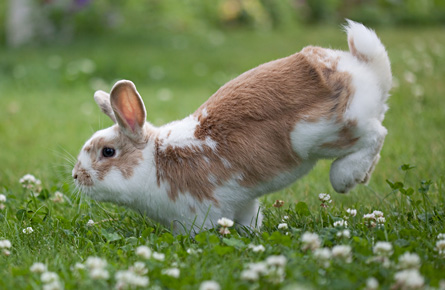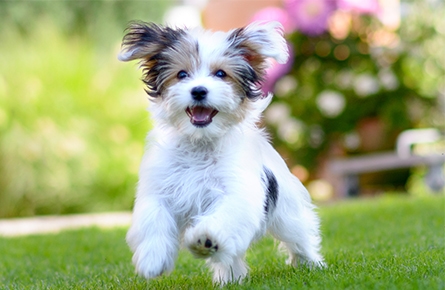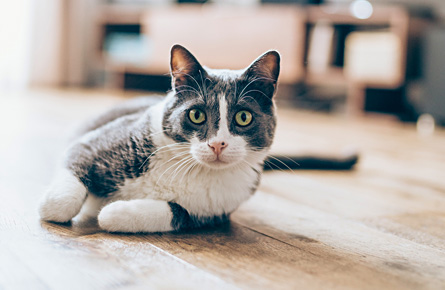Rabbit Spay and Neutering Services in Swindon

At Eastcott Vets, we provide professional rabbit spaying and neutering services to help manage your pet’s health and prevent unwanted litters. Our experienced veterinarians perform these procedures safely under general anaesthesia, ensuring your rabbit remains comfortable throughout.
This page covers everything you need to know, including the procedure, timing, aftercare, and how to book an appointment with one of our local Swindon clinics.
Book a Rabbit Neutering Appointment Online
What is Rabbit Spay and Neutering?
Rabbit neutering, or 'spaying', is a surgical procedure that prevent rabbits from reproducing. These surgeries are performed under general anesthesia by a qualified veterinarian to ensure the rabbit’s safety and comfort.
-
Rabbit Spaying (Female Rabbits):
-
Surgical removal of the ovaries and uterus.
-
Prevents the rabbit from becoming pregnant.
-
-
Rabbit Neutering or Castration (Male Rabbits):
-
Surgical removal of the testicles.
-
Prevents the rabbit from fathering litters.
-
Both procedures are routine operations that play an important role in managing rabbit populations responsibly.
When Should I Neuter my Rabbit?
Rabbits are usually neutered around four months of age. It is worth noting that sperm can reside in the genital tract for up to six weeks, so it’s best to keep your rabbit away from un-neutered females during this time. Rabbits are extremely social creatures; neutering helps pair or bond rabbits, making them much happier.
Book a Rabbit Spay or Neutering Appointment Online
Call Eastcott Vets on 01793 528341
Benefits of Neutering your Rabbit
-
Prevents Unwanted Litters: Spaying females can prevent unwanted pregnancies and womb infections.
-
Reduce Health Risks: It can help prevent uterine infections, tumours and breast cancer.
-
Improved Behaviour: It can also help prevent testicular cancer and prostate disease.
-
Stronger Bond: Neutering can assist in preventing roaming and aggressive behaviour.
Rabbit Neutering Swindon: The Procedure
Before rabbit neutering, a pre-operative check-up will be performed to make sure the pet is suitable for anaesthesia. On admission, we will discuss the procedure and go through the consent form. Please note we must gain a signature from the registered owner (over 18) or authorised agent on the consent form.
After documentation is sorted, your rabbit will first receive general anaesthesia and then a small incision will be made in the scrotum (males) or in the abdomen (female), where testicles/ovaries and uterus will be removed carefully. Once these are removed, the incision will be closed with dissolvable sutures.
General Anaesthesia
Your rabbit requires a general anaesthetic for neutering; here at Eastcott Vets we have measures in place to ensure their safety during the procedure. A dedicated Registered Veterinary Nurse (RVN) will monitor your pet throughout their surgery and recovery. Although rabbits are deemed to be a ‘high risk’ under anaesthesia, the health benefits alone far outweigh the risks; over the years, rabbit anaesthesia has become much safer.
Risk levels of anaesthesia increase with a pet’s age, certain breeds and if your pet has any underlying health conditions. Your pet will receive a premedication to relax them and will also receive two types of pain relief. Rest assured the Eastcott Vets team will be with your pet every step of the way.
Book a Neutering Appointment Online
Aftercare & Recovery
Your rabbit will be admitted as a ‘day patient’, and it will be discharged later that day once our team are happy with how your Rabbit has recovered. During your pet’s discharge appointment, the team will go through everything you need to know about caring for your rabbit after their surgery and their pain relief medication.
We will provide detailed instructions on post-surgical care before discharging your rabbit. At Eastcott Vets in Swindon, we are always at the end of the telephone for you and your pet, so please contact us if you have any further questions once you have your pet settled back at home.
Call Eastcott Vets on 01793 528341
Should I let my rabbit have one litter before spaying her?
This happens to be a common question, and there are no known health benefits to letting your rabbit have a litter; this is also the same for dogs and cats.
How Much Does It Cost To Neuter Your Rabbit?
For more information about our procedures and pricing, please visit this page. If you need more information, do not hesitate to contact us at Eastcott. We also offer Pet Health for Life insurance, which covers a range of procedures and gives you a 10% discount on rabbit neutering.
Rabbit Neutering Swindon: Why Choose Eastcott Vets?
At Eastcott Vets in Swindon, we are proud to have an experienced team of veterinarians and veterinary nurses who are passionate about what they do. We offer competitive prices whilst offering a caring and comprehensive service for all pets under our care.
With three clinics covering the whole of Swindon, we are ideally located to offer rabbit spay and neutering services to pet-owners across Chisledon, Marlborough, Highworth, Wroughton, Cricklade, and Royal Wootton Basset.
Book Your Rabbit Neutering Appointment Today
Please note: Please bring your rabbit in a secure box or basket with a blanket that smells of home; we advise rabbits are brought along with their companions to reduce the stress of separation between a bonded pair. Bringing your rabbits lunch is also preferable. We require rabbits to eat relatively quickly after a general anaesthetic; having their favourite foods on hand speeds up their recovery time so we can have your rabbit back home with you as soon as possible.







